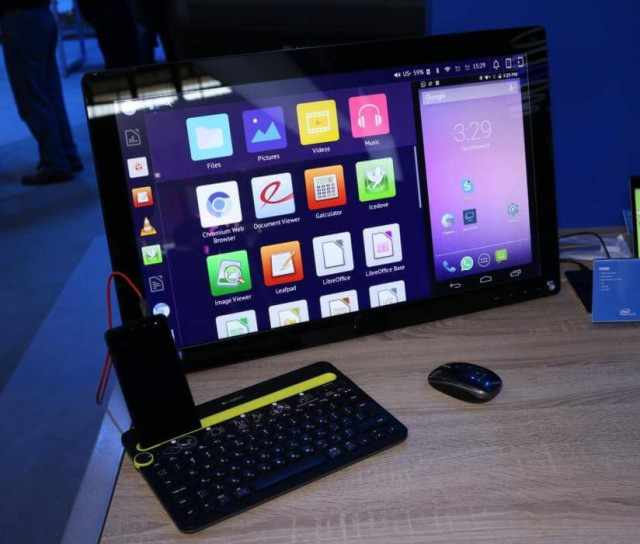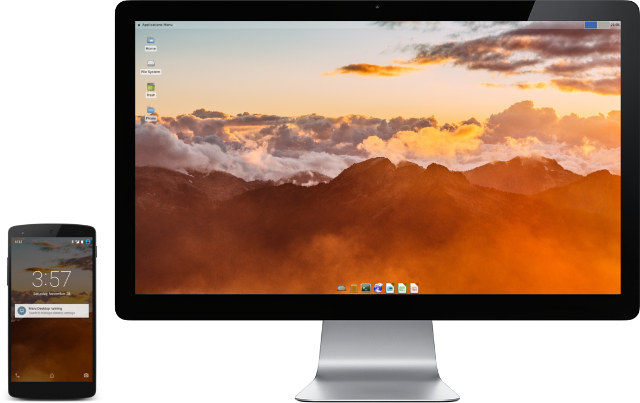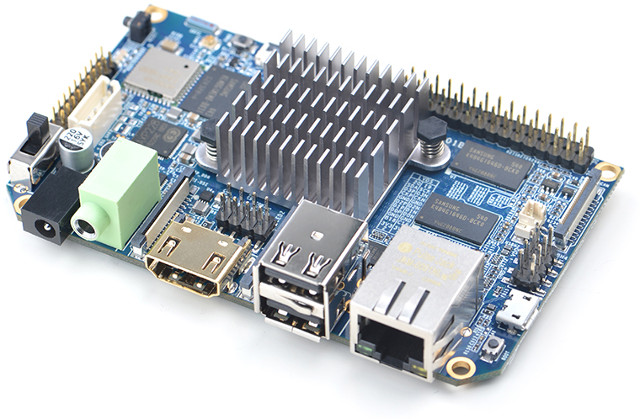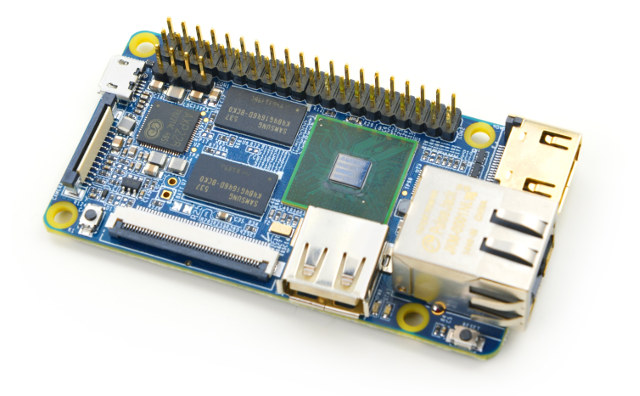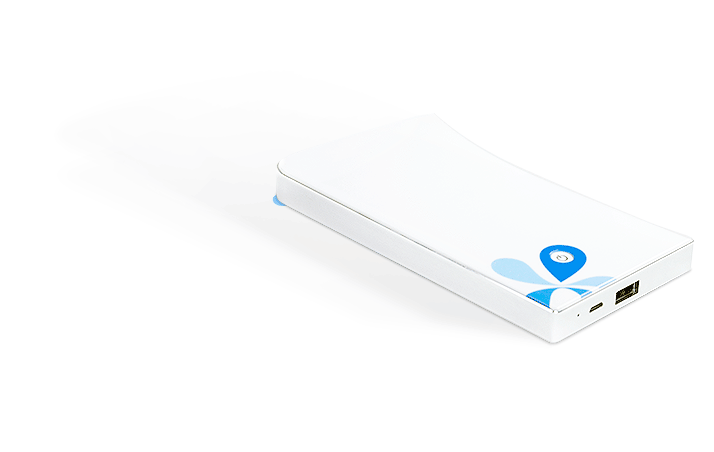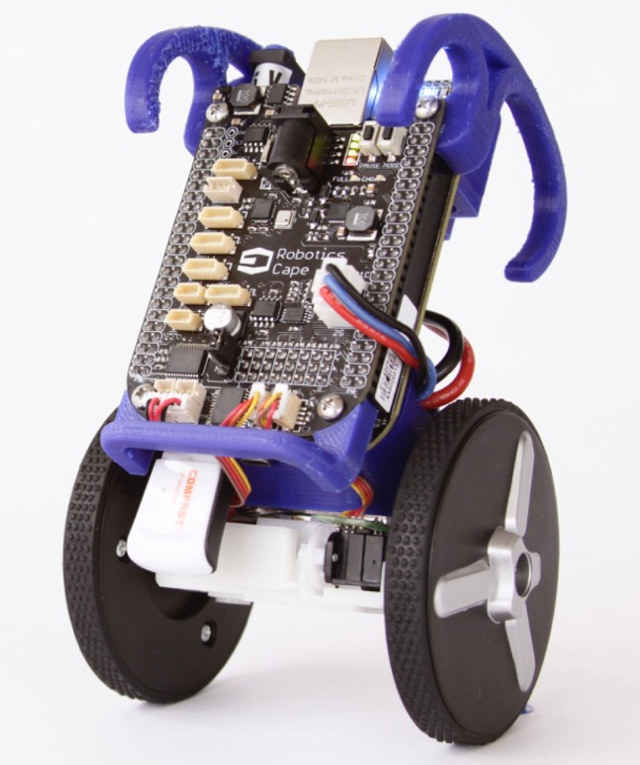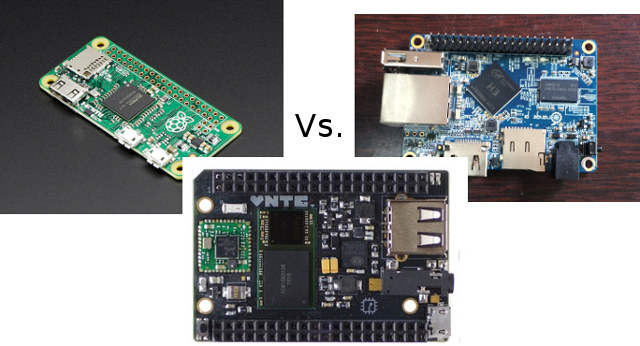MaruOS is an operating system combining Android and Debian Linux that – until recently – was developed by a single developer for Qualcomm Snapdragon 800 (ARM) based Nexus 5 smartphones, and use Android on the go, while switching to Debian when the phone is connected to a larger display and a keyboard and mouse. It turns out Intel had the same idea, and they worked on an Intel Atom x5 smartphone with 2GB RAM running both Android Lollipop in mobile mode, and Debian Linux as desktop mode when connected to a keyboard dock. Intel does not talk about convergence, but instead calls it “Big Screen Experience”. Based on the picture above taken by WinFutures.de at Mobile World Congress 2016, it appears you can also display both Debian and Android operating systems side-by-side if you wish to. They’ve also shot a video (in German) showing the smartphone run Android, and after […]
Open Source Operating Systems News – Maru OS, Zephyr, ReactOS, Tizen 3.0, and Raspbian
There have been several news related to open source operating systems in the last couple of weeks including Maru OS to run Debian on Android, Zephyr Project real-time OS managed by the Linux Foundation, ReactOS an open source port of Windows XP, and Raspberry Pi boards are getting a Tizen 3.0 port, as well as a new Raspbian release. Maru OS – Mobile <-> Desktop Convergence Maru OS mobile operating system is supposed to do what Ubuntu convergence promised: it runs in mobile mode on the go with Android Lollipop mobile OS, once you connect the phone to an HDMI screen, and pair Bluetooth keyboard and/or mouse, it will switch to desktop mode running Debian Linux. The downside is that so far it a single developer (Preetam D’Souza) worked on it, and the beta version only works on Nexus 5 smartphone. However, since the project went viral, dozen of other […]
Linaro Connect 2016 Bangkok Schedule – March 7-11, 2016
Linaro Connect Bangkok (BKK16) will take place on March 7 – 11, 2016, and the schedule is now available for the 5-day event with keynotes and sessions. Whether you’re going to attend or not, it’s always interesting to check the schedule to find out what’s going on in terms of ARM Linux development. The five days will focus on work by different Linaro groups, but really sessions are mixed for any given day, and I’ve created a virtual schedule for each day with available information, as Linaro has become a little more closed to the outside than when it was launched a few years ago. Monday 7 – LITE (Linaro IoT & Embedded Group) 1400 – 14:50 – Evolution of the Reference Software Platform Project The Reference Software Platform lead project was introduced in Linaro Connect San Francisco 2015, and since then it evolved and matured with the completion of […]
FriendlyARM NanoPC-T2 Board Gets More Storage, WiFi & Bluetooth, Stays Cool, and Costs Less
FriendlyARM NanoPC-T1 board powered by Samsung Exynos 4412 processor with 1GB RAM and 4GB eMMC flash was unveiled at the start of 2014 for $69. The company has now announced NanoPC-T2 with Samsung S5P4418 processor with 1GB RAM, and 8GB Flash, as well as WiFi and Bluetooth, as Gigabit Ethernet all of which were missing in the first version. NanoPC-T2 also has a power management chip, and a larger heatsink, meaning that it does not suffer from overheating like NanoPi2 according to FriendlyARM. NanoPC-T2 specifications: SoC – Samsung S5P4418 quad core Cortex A9 processor @ up to 1.4GHz with Mali-400MP GPU System Memory – 1GB 32bit DDR3 RAM Storage – 8GB eMMC flash, and 1x SD card slot (on the bottom of the board) Connectivity – Gigabit Ethernet, 802.11 b/g/n WiFi and Bluetooth LE 4.0 (Ampak AP6212) with on-board chip antenna and 1x IPX antenna connector Video Output / Display […]
NanoPi 2 Fire Board Adds Gigabit Ethernet and Power Management, Drops WiFi and Bluetooth
NanoPi 2 board, based on Samsung S5P4418 quad core Cortex A9 processor with WiFi and Bluetooth, has now gotten a brother, called Nano Pi 2 Fire, with wireless connectivity replaced by Gigabit Ethernet, and a power management IC (PMIC) for software power-off, sleep and wakeup. NanoPi 2 Fire specifications: SoC – Samsung S5P4418 quad core Cortex A9 processor @ up to 1.4GHz System Memory – 1GB 32bit DDR3 Storage – 1x Micro SD Slot Connectivity – Gigabit Ethernet port Video Output / Display I/F- 1x HDMI 1.4a, 0.5 mm pitch SMT FPC seat for full-color LCD (RGB: 8-8-8) Camera – 24-pin DVP interface; 0.5mm pitch USB – 1x USB Host port; 1x micro USB 2.0 OTG port for power and data Expansions Headers – 40-pin Raspberry Pi compatible header with UART, I2C, SPI, GPIOs… Debugging – 4-pin header for serial console Misc – User and reset buttons, power and user […]
Ocean is a Battery Powered Mobile Server Powered by Allwinner A20 Processor
iCracked, a company selling and repairing iPhones, has designed a thin and battery powered mobile Linux server called Ocean. The device is powered by Allwinner A20 processor with 1GB RAM, 4GB flash completed with 8 to 64 GB internal storage (SD card), and runs Debian 8.1 Jessie. Ocean mini server specifications: SoC – Dual core ARM Cortex A7 processor @ 1.0 GHz System Memory – 1GB DDR3 @ 480 MHz Storage – 4GB flash for firmware, 8 to 64 GB internal SD card Connectivity – 802.11 b/g/n WiFi up to 72 Mbps, and Bluetooth 4.0 LE + EDR with 10 dBm Antenna USB – 1x USB 2.0 host port, 1x mini USB for power Misc – Programmable RGB button Battery – 4,200 mAh; good for two days of continuous CPU usage; Charged via mini USB port (~4 to 5 hours) or Qi charger (~10 hours) Dimensions – 15 x 7.8 […]
BeagleBone Blue Board is Designed for Robots and UAVs
Beagleboard.org organization already tried to go Blue with BeagleBone BlueSteel-Basic that was supposed to a the single board computer to be used by OEM to integrate into their design instead of BeagleBone Black development board. For some unknown reasons this never happened, but they’ve now reused the color to introduce BeagleBone Blue board designed for robotics and UAVs. BeagleBone Blue specifications: SoC – Texas Instruments Sitara AM3358 Cortex A8 @ 1 GHz + PowerVR SGX530 GPU System Memory – 512 MB DDR3 Storage – 4 GB 8-bit on-board flash storage Connectivity – 802.11 b/g/n, Bluetooth 4.0 LE USB – USB 2.0 client and host Motor Control – 8x 6V servo out, 4x DC motor out, 4x quad enc in Sensors – 9 axis IMU, barometer “Easy connect Interfaces” – GPS, DSM2 radio, UARTs, SPI, I2C, analog, buttons, LEDs Power / Battery – 2-cell LiPo support with balancing, 6-16V charger input […]
Raspberry Pi Zero, C.H.I.P, and Orange Pi One Boards’ Features and Price Comparisons
With Raspberry Pi Zero, Next Thing C.H.I.P, and Orange Pi One, we now have have three ARM Linux development boards selling (now or soon) for less than $10 excluding shipping and taxes. So I’d think it would be interesting to compare the features of the boards, and prices for different use cases. The comparison table below shows the three boards features side-by-side with items highlighted in green for the best or extra features, and in red for the weakest. Some cells will have to be filled later as data is currently not available (marked TBD). Raspberry Pi Zero C.H.I.P Orange Pi One Processor Broadcom BCM2835 single core ARM11 processor @ 1GHz (~1250 DMIPS) Allwinner R8 Cortex A8 processor @ 1 GHz (2000 DMIPS) Allwinner H3 quad core Cortex A7 processor @ 1.2 GHz (4x 2280 DMIPS) GPU VideoCore IV ARM Mali-400 ARM Mali-400MP2 Video Decoding 1080p30 for H.264, MPEG2* and […]


